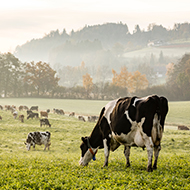EFRA Committee seeks assurance on ASC

The Animal Welfare (Sentience) Bill is to have its Second Reading in the House of Commons today (18 January).
The Environment, Food and Rural Affairs (EFRA) Committee has sought assurance on the Government's new animal welfare committee, part of the Animal Welfare (Sentience) Bill.
The EFRA Committee has written to the Secretary of State for Environment, Food and Rural Affairs, Rt Hon George Eustace MP, ahead of the Animal Welfare (Sentience) Bill's Second Reading in the House of Commons today (18 January), seeking reassurance on the new Animal Sentience Committee's (ASC) power to do its job.
Created by the Bill, the ASC will publish reports about whether animal sentience is probably considered when government policy is developed, which Ministers will have to respond to.
Although the creation of the ASC is welcomed by the EFRA Committee, it has made further comments on the Bill, saying in its letter that the it is necessary for the ASC to have people with specific expertise and scientific knowledge.
Also stated in the letter was that the amount of time allocated for the Committee's work, 15 – 20 days per year, may not be enough to attract high-calibre candidates to the role. The MPs on the EFRA Committee have asked the Secretary of State to review the time commitment of the ASC members after its first year of operations.
The EFRA Committee also asked Ministers to confirm that the ASC would be able to publish its reviews without requiring the approval of any government department, alongside highlighting that the ASC must have sufficient powers to gather the information it needs to do its work, or risk becoming 'toothless'.



 The Veterinary Medicines Directorate (VMD) is inviting applications from veterinary students to attend a one-week extramural studies (EMS) placement in July 2026.
The Veterinary Medicines Directorate (VMD) is inviting applications from veterinary students to attend a one-week extramural studies (EMS) placement in July 2026.